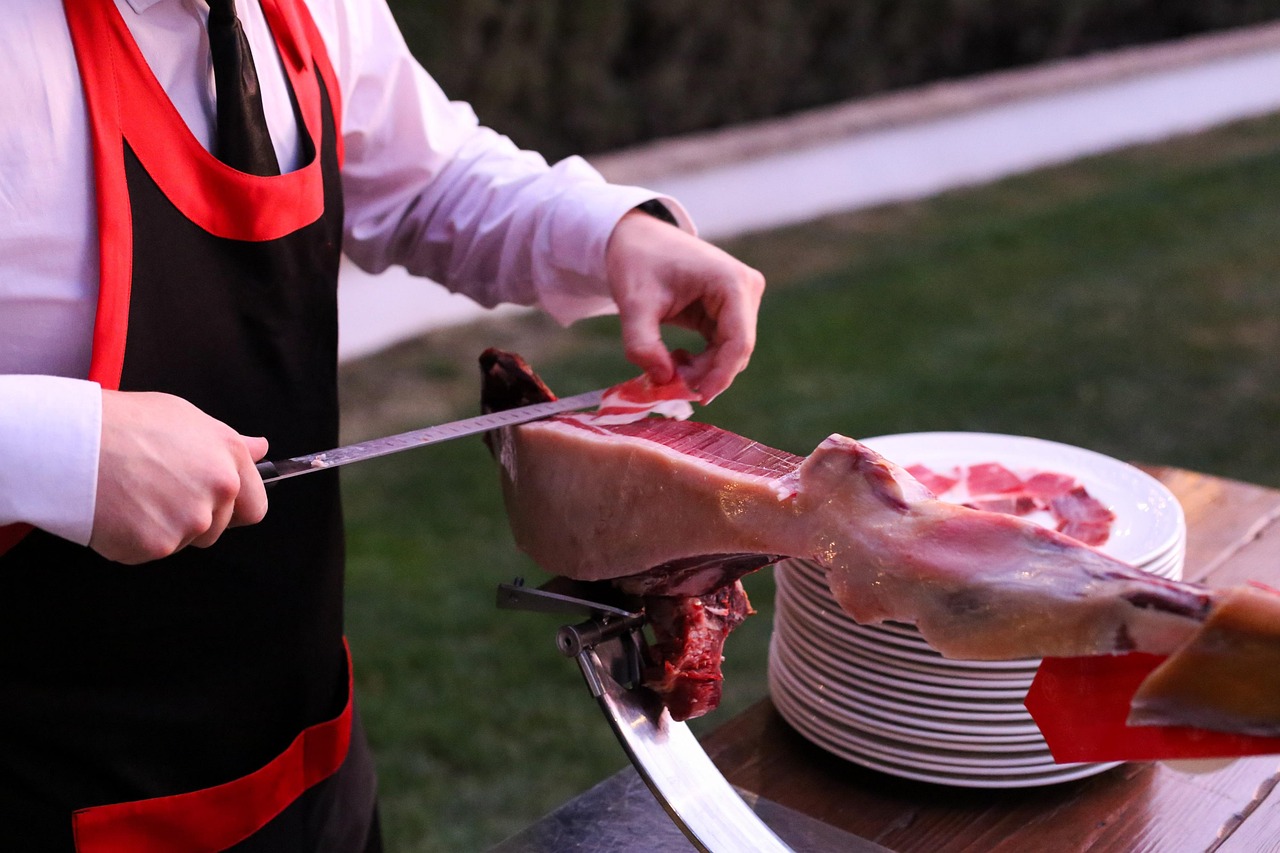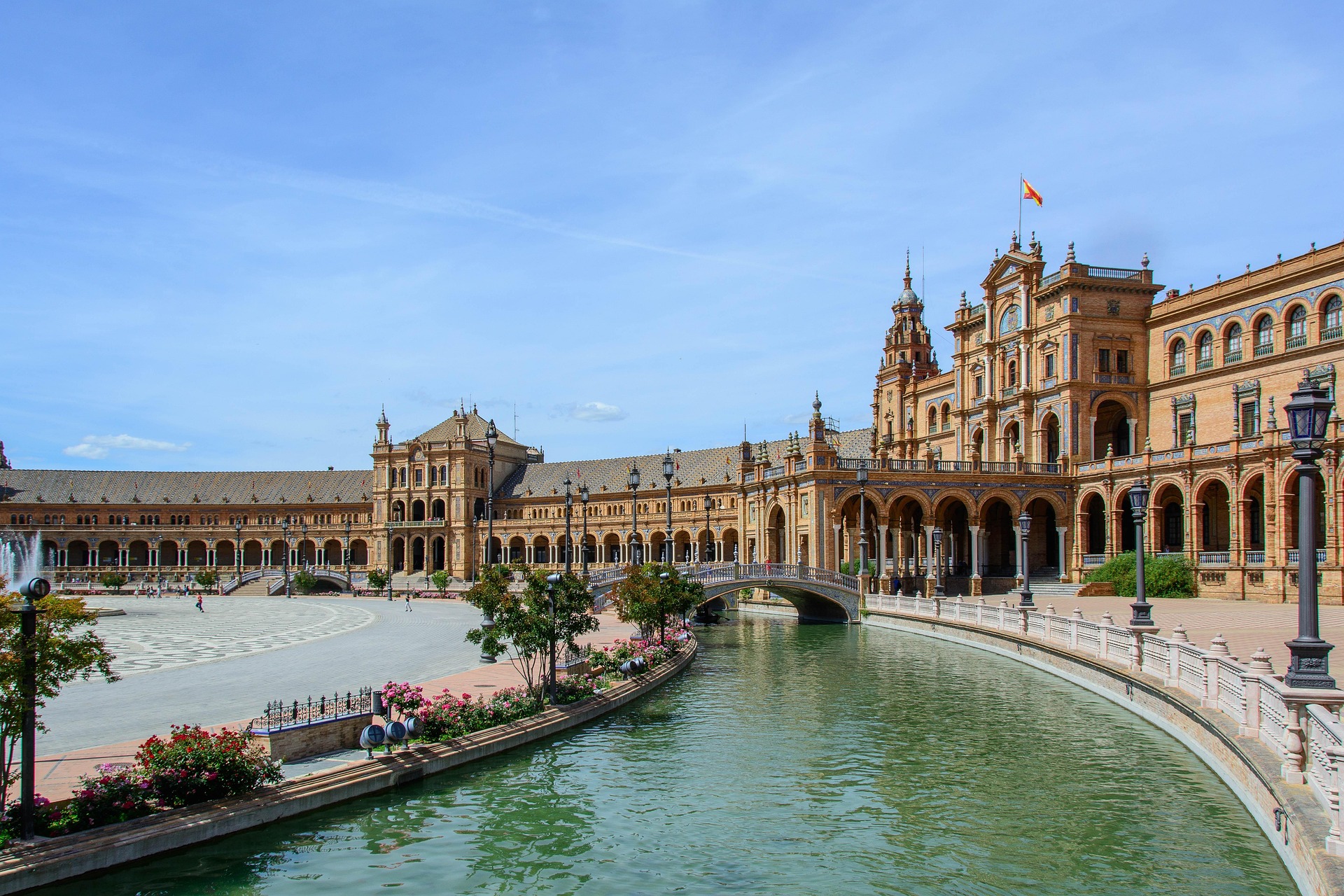We left Zafra with the van feeling slightly smug, chairs stowed, fridge behaving, the kind of start that makes you think you have cracked travel. The land opened into dehesa, low cork oaks, long shadows, pigs somewhere out there doing important pig work. Mary watched the trees and said, “If the air had a taste it would be acorn.” I said, “You are just hungry.” She pointed at the next exit. “Good, because we are stopping in Monesterio.”
The jamón shop had knives like scalpels and a quiet seriousness that made everyone speak softer. A man in a white coat lifted a shoulder of ham with two fingers like it was a violin. He smiled as if he had been waiting for us.
“You want to try the difference,” he said, already carving. “This one is bellota, this one is cebo. Close your eyes if you like.”
Mary did as told. I copied, badly.
He placed thin slices on paper. “First, the one that walked more. You will know.”
Mary chewed, blinked once and nodded. “That one moves like butter.”
I pointed at the other. “Still excellent, but the first one has a story to tell.”
He laughed. “They all have stories. The bill also has a story.”
We bought less than we wanted and more than we needed. Back at the van we wrapped the slices like treasure and promised to make them last. They did not.
The road climbed and curled, the air cooled enough to open a window, and the hills gathered into the Sierra de Aracena. We rolled into town in early afternoon, white houses stacked like plates, a castle looking down from the ridge like a friendly hall monitor. The service point was plain, two bays and a view of rooftops. A man with a cap lifted two fingers in hello.
“Grey there, fresh there,” he said, pointing without fuss.
“Gracias,” I said, then to Mary, “Two minutes and we are swimming.”
“Caps,” she said. “There is always a cap situation.”
At the municipal pool a lifeguard sat under a faded umbrella with a whistle and the authority of Rome. A sign said what it always says. Shower first, no diving, swim cap recommended. A vending machine blinked by the door.
Mary nudged me. “Your head, my cap.”
“I have a beautiful head,” I said.
“That is not what the rules say.”
We bought two caps for less than a coffee and entered a rectangle of blue that could have solved several world problems. The twins, had they been here, would have made friends by the second length. Instead we swam quiet lines, traded glances at the sky, and counted swallows that dipped to drink.
“How cold?” Mary said at the wall.
“Perfect if you keep moving,” I said. “A sermon if you stop.”
She smiled. “Keep moving then.”
We dried in the shade and walked the plaza circuit, arches and cobbles and that stillness you only get in hill towns. A waiter with a notebook gave us the short version of the cave schedule.
“Tickets on the hour,” he said. “Bring a layer. It is not winter but your bones forget the sun.”
We booked the next slot and joined a group that included two grandmothers, a couple in hiking boots, and a boy with a dinosaur t-shirt who looked ready to discover Atlantis. The guide spoke in quick Spanish and slower English, generous with both.
“These rooms are old,” she said. “Older than the people who first gave them names. Please do not touch, we leave the work to water and time.”
The Gruta de las Maravillas did what good places do. It made everyone quiet without asking. We followed lights along walkways, past pools that held the ceiling in their mirrors, past stone that looked like curtains and stone that looked like teeth and stone that looked like nothing except itself. The boy in the dinosaur shirt whispered, “Wow,” even when nothing obvious happened, which felt correct.
At the exit the sun made us blink. Mary put a hand on my arm. “Good choice,” she said.
“You starred this one as well?”
“I starred the entire town,” she said, then laughed. “But yes, the cave was on the list.”
Evening brought plates. Mushrooms from the sierra, grilled and simple. Ibérico sliced so thin the light got jealous. Tomatoes that tasted like last week and also like August ten years ago. We sat at a table that belonged to the square, not to us, and listened to someone tune a guitar behind a door. A dog took a look at our bread and decided we were not soft touches. Children in clean t-shirts practised being fast in short lines. An old woman folded a napkin like origami and set it on her glass.
Mary lifted a slice of jamón to the light. “We said we would save it.”
“We did not swear an oath,” I said.
She grinned. “Fair.”
We ate with slow hands and the kind of conversation that loops without running out.
“Best bite?” I said.
“Setas with salt,” she said. “Yours?”
“The bread under the tomato, the bit that catches the oil.”
“And tomorrow?”
I looked up at the ridge and the line of pines. “Walk to the castle if the sun behaves. Find a path with shade. Then west toward the Rio Tinto if the map makes sense. Or not. We can be people who change their minds.”
On the way back a man at a doorway nodded at the van and then at the sky. “Good night for sleeping,” he said.
“Sí,” I said. “We will try not to earn any neighbours.”
At the service point we did the evening drill. Gas off. Windows cracked. Shoes inside so the small morning panic does not happen again. I wrote a small list for the morning because I like lists and because they make days easier. Mary brushed her teeth with the door open to the view and said, “You know that boy in the dinosaur shirt is already writing his trip report in his head.”
“Same,” I said.
Outside the town hummed at a volume that would make a doctor proud. A last car, a laugh that turned into a cough, a clink of bottles, the soft metal sound of someone closing a gate. We climbed into bed, listened to a swallow that had not yet committed to sleep, and agreed that we liked days that start with ham and end with caves.
Phone note. Monesterio tasted right. Aracena under the hill, pool perfect, cave quiet. Caps bought, jamón reduced, sleep likely. Try again tomorrow.



